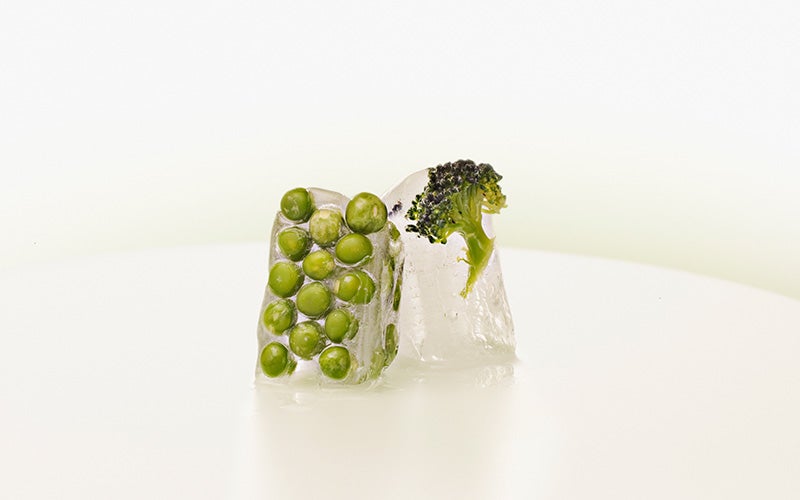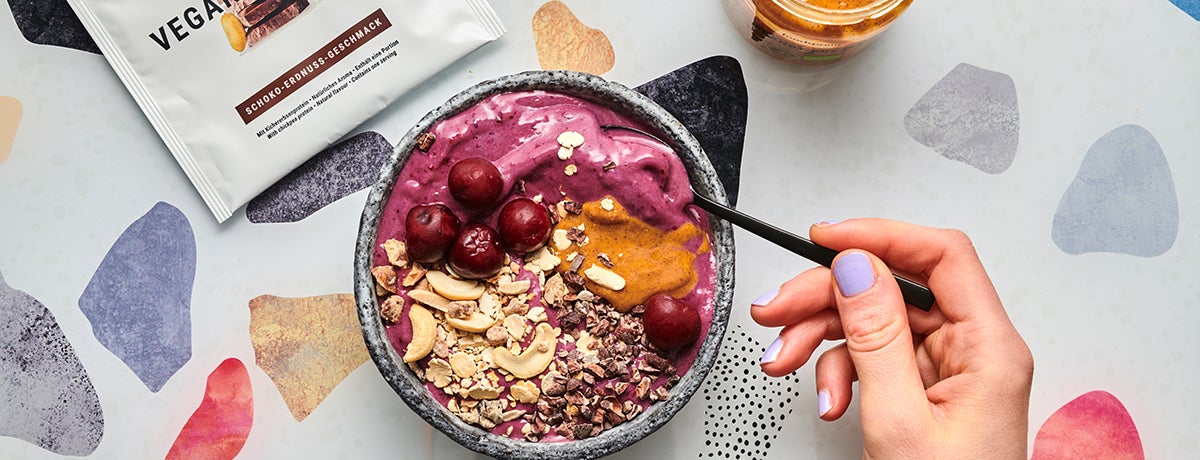Are Frozen Foods Healthy? The truth about frozen foods
 ©foodspring
©foodspring
When you’re short on time and hungry, it’s easy to turn to the freezer. Frozen fruits and vegetables or ready-made meals are quick to prepare and their taste is often as fresh as market products. It’s not for nothing that batch cooking enthusiasts are fond of them. But are frozen foods healthy alternatives to fresh products? In this article, we take a look at some of the biggest misconceptions about frozen food.
Myth #1: Frozen Food Isn’t as Healthy as Fresh Food
It’s not really surprising that frozen food is controversial. After all, we see a lot of pizza, French fries, and processed foods when roaming the frozen foods aisle. These types of frozen meals are often seen as less healthy because they can contain a high amount of calories, saturated fats, and salt. And the association has given frozen food in general a bad rap.
But don’t let these specific foods shade your whole view of frozen ingredients. The next time you’re strolling down the frozen food aisle in the grocery store, take a look at the ingredients list and nutrition facts. Most of the time, you’ll be happy to find out that there are a bunch of options with few additives and plenty of nutrients.
For example, you can never go wrong with eating frozen fruit and vegetables. They often have nothing added to them and are just as good (if not better) than their more expensive fresh counterparts, especially out of season. That’s because they’re flash frozen when they’re in season, so they’re always at peak ripeness!
Myth #2: Frozen Foods Lose Their Nutrients
In addition to preserving flavor, flash freezing also preserves nutrients. Fruits and veggies contain more nutrients when they’re freshly picked, so eating frozen foods means you’re always getting the most nutritious option—no need to worry that your freezer will zap away the nutrients.
The fact that you can keep them in your freezer for months also puts them at a huge advantage to fresh fruit and veggies.
Myth #3: Frozen Foods Contain Preservatives
Though some frozen meals contain preservatives, that doesn’t mean that all do. In most cases, companies rely on an industrial freezing process rather than preservatives to stabilize their frozen products. Temperatures below -18°C are definitely enough to keep produce fresh for a long time without any help.
Speaking of freezing for later, batch cooking is a great way to stock your freezer with ready-made frozen dinners. Whether you’re a huge meal prep fan or still need convincing, check out our article for inspo and tips!
Myth #4: Frozen Foods Will Last for Life
Frozen ingredients can last for a really long time (in some cases, up to a year), but it doesn’t last forever. Over time, freezer burn and discoloration will develop no matter how well frozen meals or frozen veggies are stored. Not sure how long you have to eat your frozen ingredients? Most products are marked with a best-by date that will keep you informed.
If you want to freeze your own food, use the following guidelines: Fruits and vegetables can be stored for six to twelve months, cut herbs for eight to ten months, and meat and fish for three to twelve months.
Myth #5: Frozen Foods Need to Be Thawed at Room Temperature
While it’s logical to think that leaving a frozen ingredient at room temperature will help it defrost faster, it’s not the safest way to thaw your food. That’s because different parts of the ingredient will warm up at different rates, and some may be at bacteria-friendly temps while others are still frozen. When raw meat is left out for too long, it’s at risk of developing everything from salmonella to e. coli.
You’re better off leaving frozen ingredients to thaw in the fridge overnight. Place a drip-tray beneath your frozen ingredient to collect the condensation as it melts. But if you’re in a rush, put it in a watertight bag and submerge it in a bowl of cold water to speed up the process. Once thawed, food should be consumed within 24 hours. This also applies to products that accidentally and completely thaw on the way home from the supermarket. Foods that have just begun to thaw can be refrozen.
Our tip: It’s best to cook vegetables and fruit while they are still frozen, as doing so better preserves their nutritional content.
Our Smoothie Bowl recipe is easy to make and is a simple way to incorporate frozen foods into your diet. It’s refreshing and perfect for busy mornings.

Summary
- Frozen foods are a healthy alternative to fresh foods. Freezing preserves nutrients over a long period of time.
- Deep freezing eliminates the need for preservatives and ensures food will be good to eat for several months.
- Always try to thaw frozen products in the refrigerator. Frozen vegetables and fruits can be prepared while still frozen.
Sources for this article
We at foodspring use only high-quality sources, including peer-reviewed studies, to support the facts within our articles. Read our editorial policy to learn more about how we fact-check and keep our content accurate, reliable, and trustworthy.





























